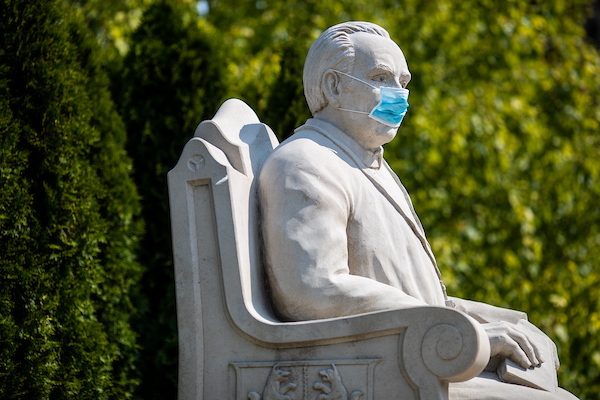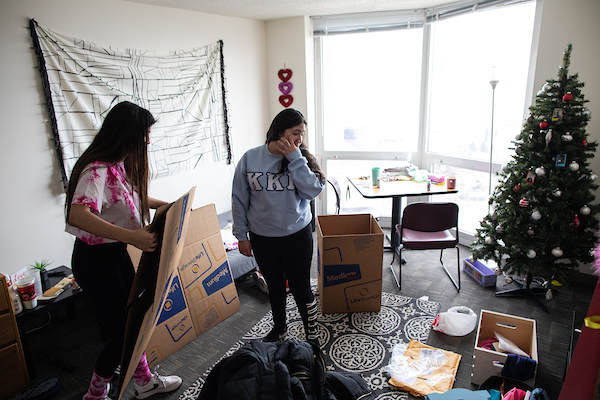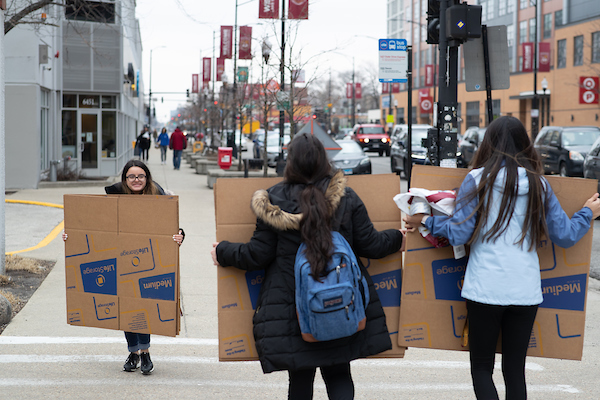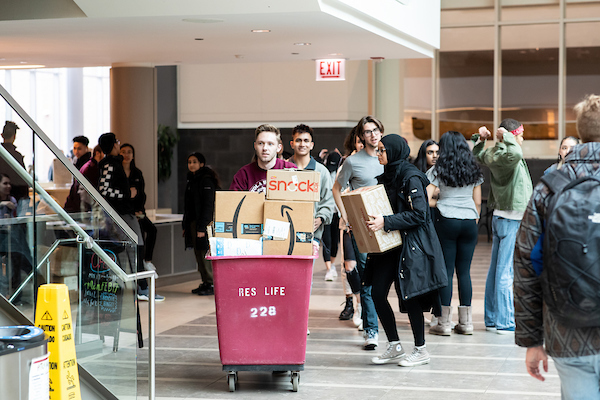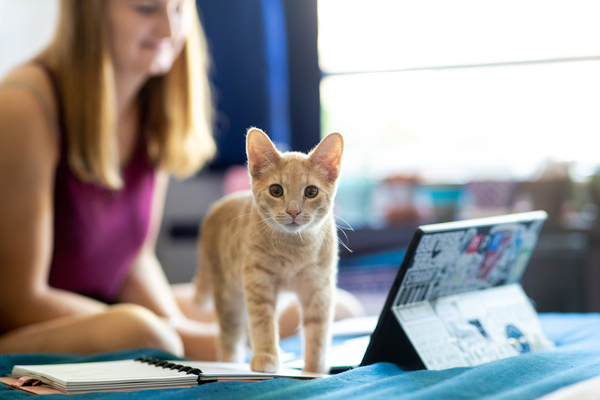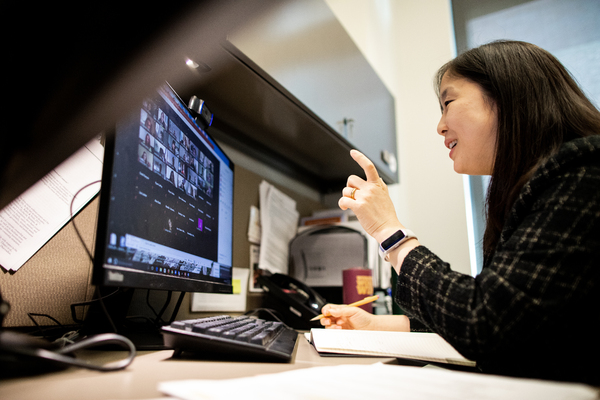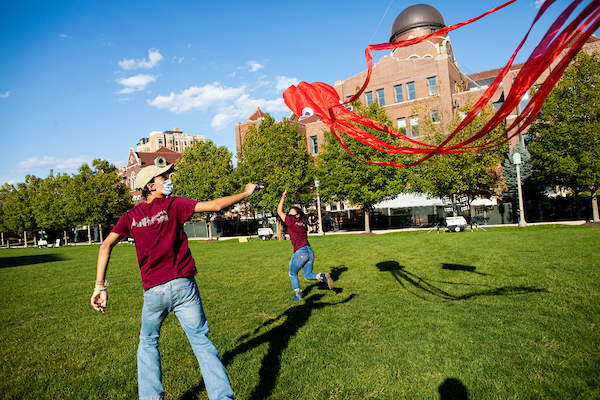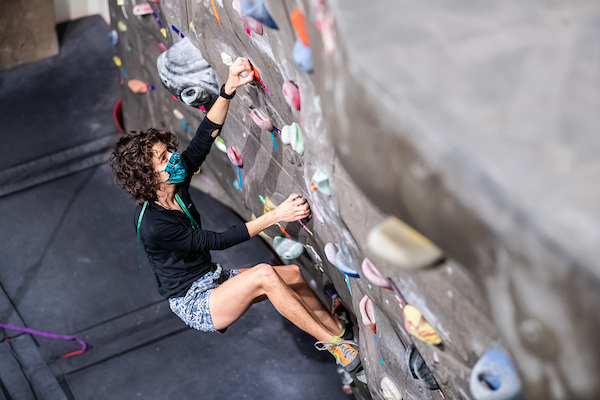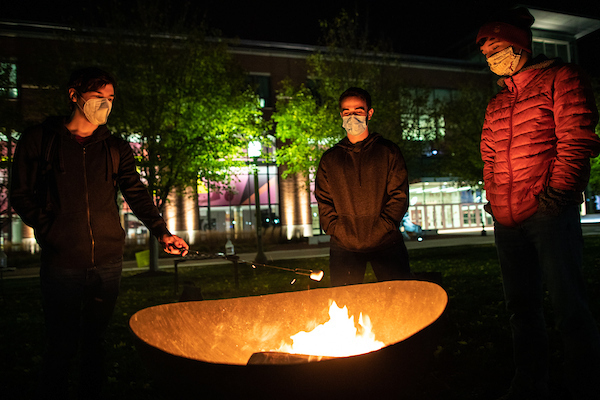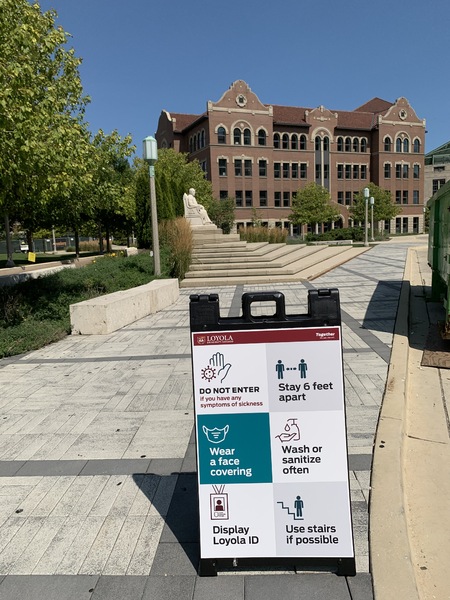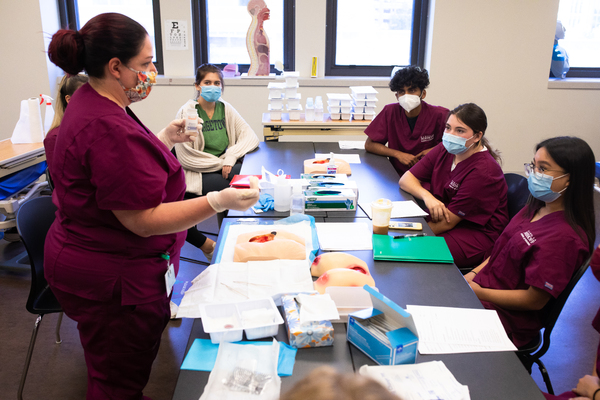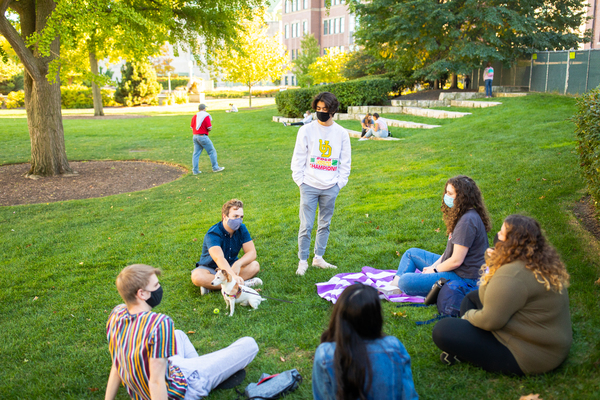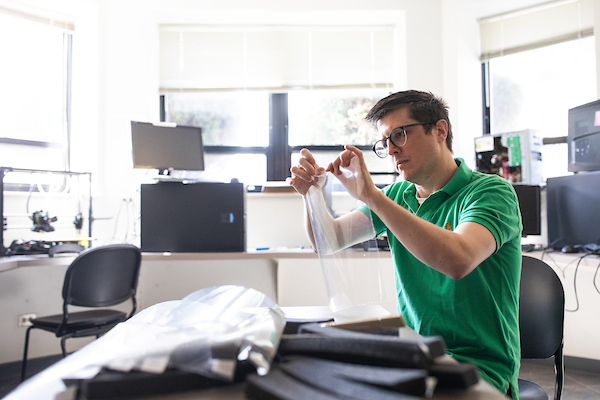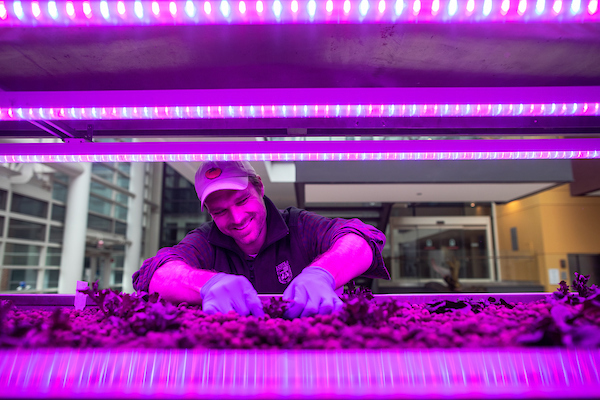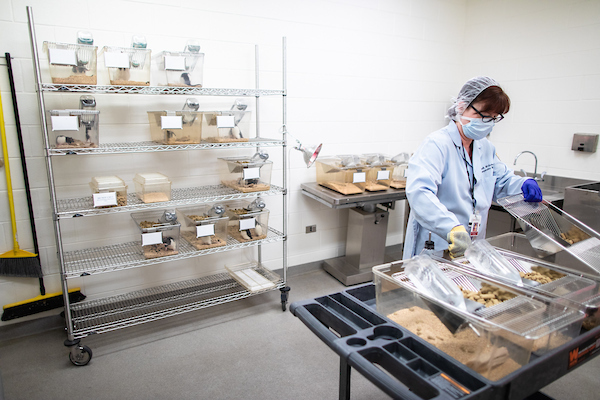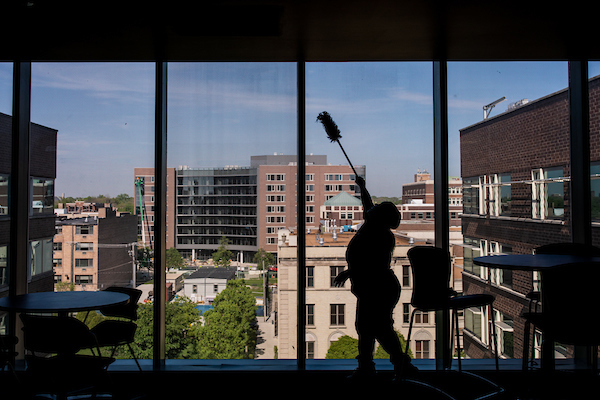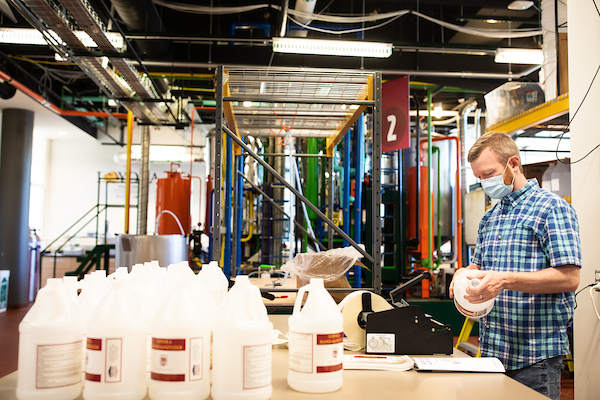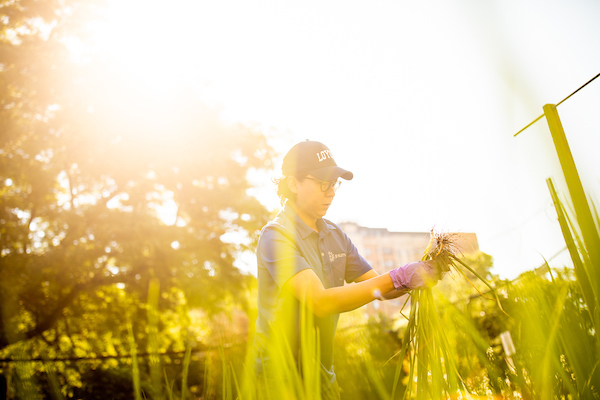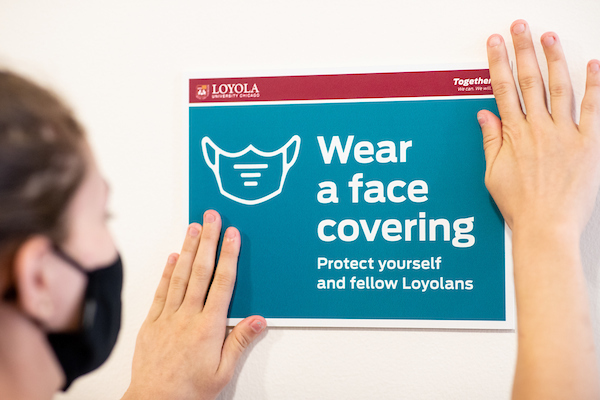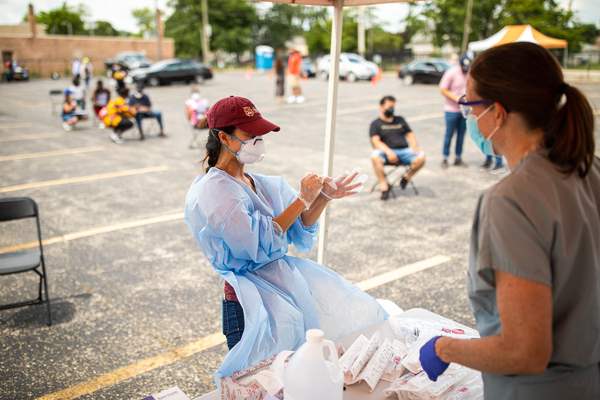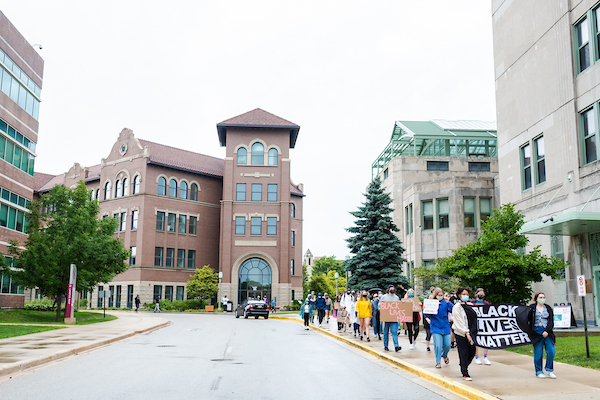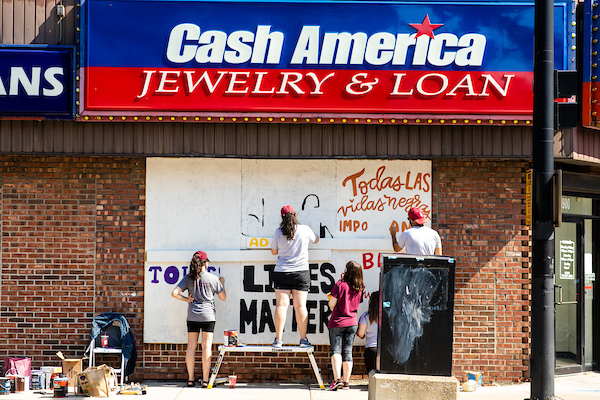2020: Sesquicentennial During COVID
"We are grateful that you have chosen to be here, to become persons for others... You young people have lived through many tragedies in your young lives. You are now called the generation of change for the good." - Sister Jean, Convocation Blessing, 2020
Loyola’s 150th anniversary was a year like no other. Yet Loyolans have met with upheaval and transformation before. From the 1871 Chicago Fire to World War II, countless events have profoundly changed students’ lives. Yet 2020 was perhaps the most-documented year of upheaval in the school’s memory.
The Spring 2020 semester began as usual with the start of courses, study abroad, athletics, and more. However, as the COVID-19 virus spread in Italy, Loyolans at the John Felice Rome Center, Loyola's Rome campus, were the first to experience quarantine. For their safety, Loyola required them to return home by March 4th and quarantine for 14 days to prevent spreading the virus. Some were shocked, and many grieved the loss of the experiences they had planned for their time abroad.
In Chicago, plans to celebrate Loyola's anniversary were put on hold as news of the COVID-19 outbreak reached campus. Students were required to move out of dorms by March 23rd and nearly all classes transitioned to remote using technology such as the videoconferencing app Zoom and Panopto, a tool for creating and streaming video. Like students around the world, Loyolans had to reconsider their plans, from freshmen to seniors and from graduate to medical students. Many beloved student traditions had to be canceled or moved online, except for a few opportunities to take advantage of good weather and open campus space in the later part of 2020. Online classes produced their own challenges, and students and faculty alike faced these with creativity and determination. Via Zoom, students met their peers' and professors' pets as well, bringing an unexpected sense of levity and humor to virtual classes.
Distance
Campus itself seemed transformed by the pandemic. Safety measures were required to prevent the spread of the virus, including building closures and signs. Meanwhile, the distance from campus created a sense of loss, as students missed their campus homes and the familiar people and places that were part of their school experience. Living alone or with family presented new challenges while students faced the uncertainty and grief of a global pandemic.
About a dozen classes requiring hands-on instruction were offered in-person, especially science, nursing, medical, physical anthropology, and environmental courses. Eventually, following health guidelines, students were able to make use of campus spaces for studying and recreation. Loyola's Centennial Forum served as a polling place for the November 4 election, allowing local residents to cast their vote safely.
Endings and Beginnings
As the 2019-2020 school year ended, new graduates grappled with the strange end of their college experience. The commencement ceremony was first pushed back, then canceled to prevent the spread of COVID-19. Embarking on a transition out into an uncertain world, new graduates joined generations of Loyola alumni who left campus during world crises. Soon, the Fall 2020 semester brought a new class of students, most of whom would begin their college experience virtually. All the while, student organizations adapted to the virtual format and maintained their community ties even while apart.
Reaching Out
Yet in a year of isolation and uncertainty, students and other Loyolans continued to strive to care for others. Loyola faculty and staff worked to provide fresh produce to food banks in Rogers Park, maintain the wellness of plants and animals in Loyola’s care, and create Personal Protective Equipment (PPE) to donate to healthcare workers. Faculty and students from the Stritch School of Medicine, Parkinson School of Health Sciences and Public Health, Quinlan School of Business, School of Social Work and Marcella Niehoff School of Nursing volunteered to organize free COVID-19 testing and distribute PPE at the Rock of Ages Baptist Church in Maywood, IL and several other locations during the summer of 2020.
On July 6, the U.S. Immigration and Customs Enforcement (ICE) agency suddenly ruled that international students who were not taking in-person courses would be deported, which would have affected nearly all of Loyola's international students. Loyola joined 15 Illinois universities in filing a declaration against the ruling with the Illinois Attorney General on the grounds that the ruling was arbitrary and capricious. Loyola was also one of 178 colleges and universities in an amicus brief supporting a legal complaint by Harvard University and the Massachusetts Institute of Technology. While legal wheels turned, Loyola faculty stepped up to offer special in-person classes for international students. The immense outcry against the ruling led to its reversal only a week later.
Marching for Justice
And as the world grappled with the COVID-19 pandemic, Loyolans reckoned with another pandemic that had long plagued Black communities: racial injustice. The murder of George Floyd, a Black man, by police in Minneapolis was captured on video and witnessed by many in person and online. This was a turning point in a year in which COVID-19 disproportionately affected communities of color, and in which several other unarmed people of color such as Ahmaud Marquez Arbery and Breonna Taylor had been shot and killed. Spurred into action, protestors all over the United States marched in unprecedented numbers to support the Black Lives Matter movement and call for an end to systemic racism. These marches, which began at the end of May, catalyzed deep conversations about the need for anti-racist behavior and sparked solidarity protests globally, as individual countries reckoned with systemic injustice in all of its forms.
At Loyola, the student-led organization Our Streets LUC began holding demonstrations around Loyola’s Lake Shore Campus in August 2020 to call attention to racial injustice at Loyola and issued a list of demands aimed at bettering the school environment for Black faculty, students and staff. This movement, along with the support of departments and student organizations, eventually led to the creation of the Anti-Racism Initiative, an ongoing collaboration between students, faculty, and staff to identify goals and take actions to address community concerns and promote diversity, equity, and inclusion at Loyola. Other staff, students, and alumni also volunteered for neighborhood beautification projects following the George Floyd protests, seeking to promote healing and community during a particularly painful time.
Looking Forward
As the artifacts of a tense, tumultuous year, these snapshots and documents shed light on how student life adapted to challenges so different from -- and yet so similar to -- challenges faced by students over the past 150 years. During dark times, perhaps the darkest they had seen in their lifetimes, many Loyolans strove to be persons for others.
Looking forward, with medical advancements providing hope through vaccines and testing, the future will again look different at Loyola. With the support of faculty and staff, future generations of Loyola students will continue to navigate the changing world in which they live with resolve and compassion. And like many Loyolans before them, future students will step forward to heed the call to "set the world on fire."
In the words of Sister Jean, "Amen, God bless you, and GO RAMBLERS!"

